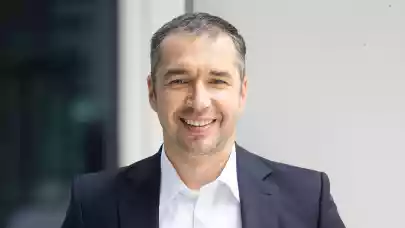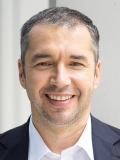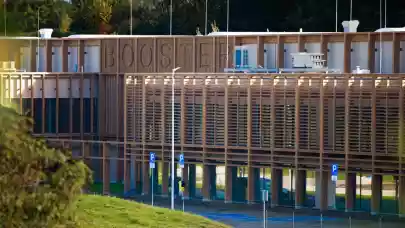
In light of the pandemic, HB Reavis is reassessing its approach to divestments. Peter Pecnik, Poland Country CEO and Group CFO of HB Reavis talked to Property Forum about COVID-19’s impact on the Polish office market and also shared details about the company’s financing strategy.
The construction of Varso Tower – the tallest skyscraper in the European Union, is slowly coming to an end. Has the COVID-19 pandemic affected the works in any way?
Indeed, we have recently completed major milestones at Varso Tower. In the period of immediate uncertainty over the outbreak of the pandemic in Poland, we were able to adapt our response, introduce safety procedures at construction sites and our offices and continue works with minor delays, having the safety of employees and business partners in focus. During the crisis, we delivered 74,000 sqm GLA in two adjacent Varso Place buildings. Now, the tower has been topped out at 230 metres and, with the assembled spire, the building structure reached its final architectural height of 310 metres. Construction and installation works will continue until Q1 2022. Once completed, Varso Tower will offer spectacular views of Warsaw's skyline.
What about the commercialization of the project? Analysts are almost unanimous that demand for office space will be shrinking in the coming years…
Varso Tower is the final showpiece of our Varso Place mixed-use development consisting of offices, a hotel, an innovation hub, retail and services situated in central Warsaw. Due to the strong demand for downtown Warsaw offices, most new buildings are leased prior to opening – such was the case with Varso 1 and Varso 2. Companies are analysing how they can work and they’re considering their office needs more carefully now. However, we are in talks with several prospective tenants looking to move their office headquarters to Varso Tower in 2022 and we remain optimistic.

Peter Pecnik
Poland Country CEO and Group CFO
HB Reavis
How are you going to deal with the incoming conflict of tenants pushing for shorter agreements and smaller offices versus investors constantly requiring well-secured, long-term leases?
I would not call that a conflict, rather an evolution. Real estate developers, like us, are increasingly becoming versatile consultants, expanding their range of products and services. Clients are becoming more conscious users of workspaces. They no longer expect just walls filled tightly with desks for sending emails. Rather, they search for an office fitting the needs and supporting the collaboration and productivity of their employees. An office that attracts new talent, drives employee creativity and – now more than ever – supports their well-being. At HB Reavis, we were an early adopter of that shift and we introduced a mix of solutions sought after by employers. That is why on top of long-term office space contracts in well-connected locations with a range of amenities, we have long offered Origameo workspace consultancy services and flexible lease terms such as HubHub and Qubes that are particularly attractive for our clients. Investors recognise our long-term strategy and our position remains strong.
Do you believe that demand for „classic” offices will shift to flexible, serviced spaces permanently or is this just a temporary trend?
COVID-19 has supercharged existing trends in planning more flexible offices compatible with a work style that involves greater mobility, a rotating remote work schedule, as well as collaborative workspaces. Corporations increasingly prefer coworking or serviced spaces that let them determine the number of necessary workstations depending on the market situation. In response, HB Reavis provides clients with either Qubes flex offering or our HubHub coworking spaces available at most of our new developments. However, we still observe consolidations of several classic office locations that are merged into a single new headquarters with both traditional and flexible workstations. In the post-COVID era, we expect a reasonable balance between flexible and traditional spaces available in our office buildings.
As Group CFO, have you noticed any changes in financing conditions since the start of the pandemic? Are banks more cautious than before?
The pandemic undoubtedly brought upon unexpected situations for all businesses across the globe. Having said that, we have been and still are a valued partner for financial institutions. HB Reavis’ balance sheet is well-positioned to face the current crisis given our disciplined approach to leverage and current liquidity. We have committed bank financings for capital expenditures of all our projects under construction. The company ended the year 2020 with the liquidity of more than €190 million in cash and cash equivalents. We have also successfully secured sufficient funds for the repayment of bonds in Poland and Czechia maturing in the first half of the year 2021.
Has COVID-19 and the changes brought on by it made you rethink your financing strategy in any way?
COVID-19 influenced the approach of lenders and investors towards certain property sectors but HB Reavis, with our key focus on innovative and smart workplaces, remains well-positioned in having access to external funding sources. We continue to utilize a combination of traditional bank project financing with bond and corporate financings, and in both areas we successfully continued our activities even during the pandemic period. We are, however, reassessing our approach to divestments and believe that keeping income-producing assets on the balance sheet for longer after their completion will enable us to extract greater value.



